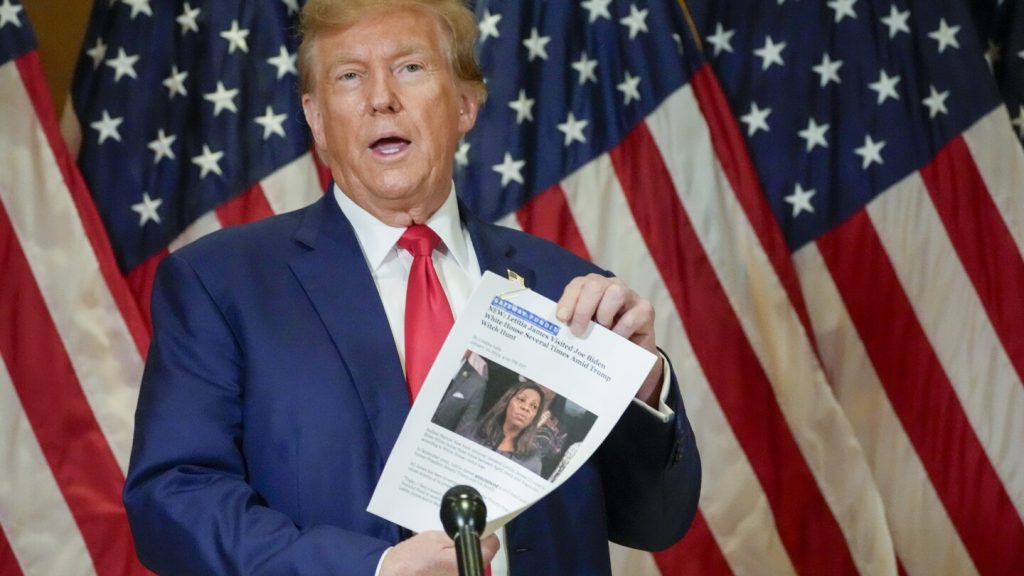A New York appeals court has agreed to delay the collection of former President Donald Trump’s $454 million civil fraud judgment if he puts up $175 million within 10 days. This decision will prevent the state from seizing Trump’s assets while he appeals the ruling. The court also halted other aspects of a trial judge’s ruling that barred Trump and his sons from serving in corporate leadership for several years. This development was seen as a significant victory for the ex-president as he defends his real estate empire.
Trump, attending a separate hearing in his criminal hush money case, praised the ruling and indicated that he would post a bond or cash to cover the $175 million sum in the civil case. He criticized the trial judge and expressed frustration with the legal proceedings. Meanwhile, New York Attorney General Letitia James noted that the judgment still stands, even if the collection is paused. Trump’s lawyers argued for the halt, citing difficulties in obtaining an underwriter for a bond of that size.
The five-judge panel in the state’s appeals court ruled in favor of Trump’s request to delay collection while he fights to overturn the trial judge’s decision. The judge had found that Trump and his company lied about his wealth on financial statements, deceiving lenders and insurers. Trump and his co-defendants denied any wrongdoing, claiming the statements undervalued his wealth and were not taken at face value by the institutions involved. The judge ordered Trump to pay $355 million plus interest, with smaller amounts for his sons.
Attorney General James had previously refrained from enforcing the judgment to allow Trump to seek a reprieve from paying, but that period ended with the recent ruling. James indicated that if Trump does not pay, she will seek to seize his assets. Trump has claimed to have a substantial amount in cash, but he expressed concern that James and the judge do not want him to use the money for his potential presidential run. The attorney general could pursue Trump’s bank accounts, real estate properties, and other assets if the penalty is upheld.
The legal process of seizing and selling Trump’s assets could be complicated due to their magnitude, with experts noting that finding buyers for such assets takes time. Trump’s lawyers have faced challenges in obtaining a bond for the judgment amount, as underwriters demanded a high percentage of the sum and refused real estate as collateral. The appeals court found a middle ground by requiring Trump to put up money but lowering the amount. The attorney general’s office objected, stating that Trump had not explored all options for covering the judgment.
While filing an appeal typically does not delay enforcement of a judgment, posting a bond to cover the amount owed automatically pauses the process. The unusual aspect of this case lies in the significant sum involved and Trump’s need to come up with the money himself. The ex-president’s attorneys continue to push for a freeze on collection without requiring him to post a bond, while the attorney general’s office maintains that other options should be considered. Trump’s legal battle in this civil fraud case continues as he navigates the complexities of the judgment and potential enforcement actions.















